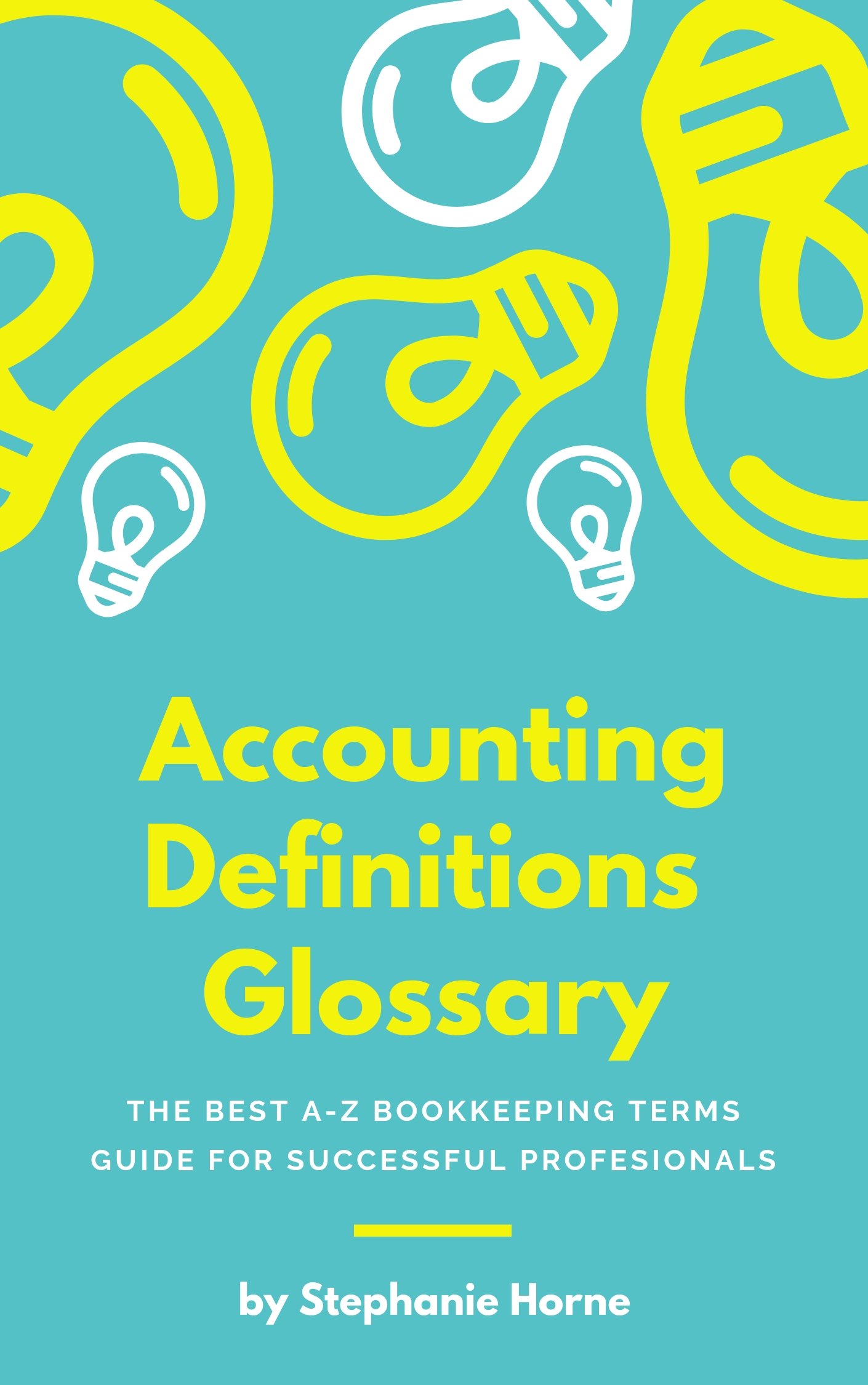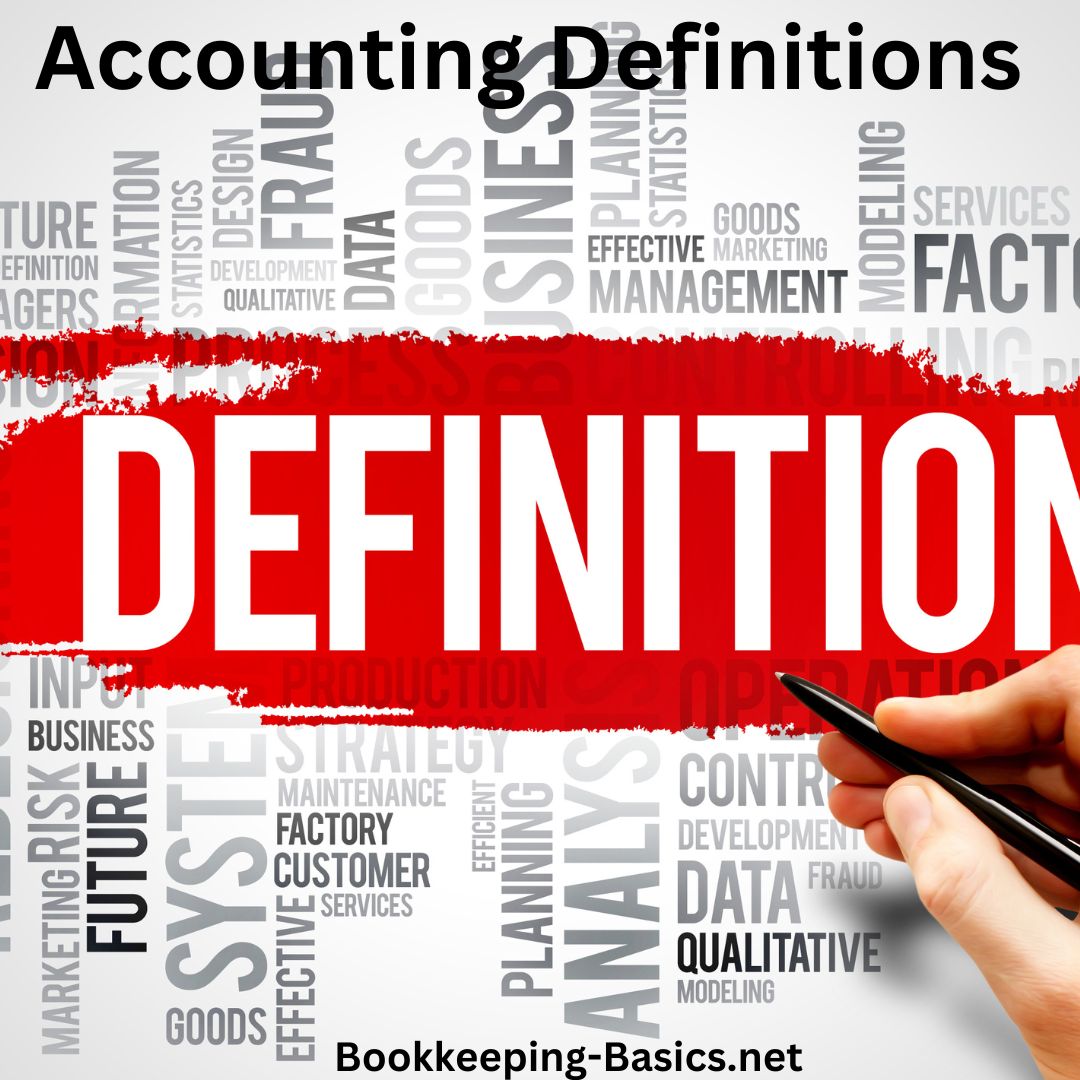- Home
- Definitions
- Letter B
Accounting Definitions B
Bookkeeping Terms Starting With Letter B
Accounting Definitions B - There are hundreds of accounting definitions, financial meanings and bookkeeping terms here in my accounting terms glossary.
Use this as an accounting resource to help improve your knowledge of bookkeeping terms and accounting definitions starting with the Letter B.
Accounting Definitions B -Choose A Letter
Pick a letter to go directly to the accounting definitions and bookkeeping terms associated with that letter.
Accounting Definitions B - Site Search
Or use the Search Engine below to search the entire website for the accounting definition you are looking for.

Accounting Definitions - Glossary
Receive a full A-Z Bookkeeping Terms Glossary complete with each of the words you will find here all in one place on this free E-Book.
Accounting Definitions - Word Search
Also get these Accounting Definitions Word Search Puzzle Worksheets that are super fun for business owners, bookkeepers, accountants or anyone in the financial industry.
Accounting Definitions B
Bookkeeping Terms Starting With The Letter B
Bad Debts:
Amounts owed by customers or borrowers that are unlikely to be recovered by a company or an individual. These debts typically arise when the debtor is unable or unwilling to fulfill their financial obligations, such as making payments on a loan, credit card debt, or unpaid invoices for goods or services. Bad debts are considered to be losses for the creditor or lender, as they have little or no chance of recouping the money owed.
Balance Sheet:
A statement showing the assets and liabilities of a company or institution at a particular time.
Balloon Payment Loan:
A balloon payment loan agreement is a formalized loan with a final payment that is larger than the regular payment amount.
Balloon payment loans usually have a lower interest rate than a standard loan to compensate for the larger, final payment.
Most balloon payment loans have fixed monthly principal and interest payments with a defined payback period.
Banking:
Banking consists of two basic operations: 1) receiving money from the general public and 2) investing this money to make a profit.
The money a bank receives is in the form of deposits, while its investments usually consist of loans and securities on which it earns interest.
Banks typically offer two general types of accounts to their depositors: savings and checking.
Savings accounts are designed for people who wish to save money and have it earn interest, while checking accounts are designed to keep money in the bank that may be used without coming to the bank to withdraw it.
This is accomplished by writing a check.
Barter:
The exchange of one kind of property for another without the use of money. (The exchange of goods for money is called a bill of sale; the exchange of similar goods such as a car for a car is a trade).
Base Unit of Measure:
The first unit defined in a unit of measure set and is usually the smallest unit of measure used for an item when purchasing it, tracking it in inventory, and selling it.
Bond:
The written promise of a corporation or government to repy borrowed money on a specified date and at a fixed rate of interest. Bonds are usually issued in groups to finance large loans.
Bookkeeping:
A systematic method of recording business transactions. The recording or clerical part of accounting.
Basic bookkeeping shows money received and money spent for a given period.
More complete bookkeeping business systems show where income came from, how and where money is spent, how much profit a business made or how great a loss it had, what the business is worth, and how these results for the given period compare with the results for previous periods.
Break-Even Point:
The activity, practice, or profession of maintaining the business records of a person or organization and preparing bookkeeping forms and reports for tax or other financial purposes.
The point or level of financial activity at which expenditure equals income or the value of an investment equals its cost, with the result that there is neither a profit nor a loss.
Budget:
A plan specifying how resources, especially time or money, will be allocated or spent during a particular period.
Business:
An organization set up to carry on some form of economic activity for profit. A business may be owned by one person or may be a partnership, cooperative, or corporation. In a more general sense, business is a broad term covering commerce and trade, industry, and banking & finance.
Business Cycle:
The pattern of recurring changes in economic conditions, from good to hard times, and back to good. In each cycle there are usually four stages: 1) prosperity, 2) decline, 3) depression/recession, and 4) recovery.
Business Plan: A business proposal, marketing plan or business strategy. A written document outlining a company's goals and how it plans to achieve those goals.
It can serve as a tool for decision making or as a proposal for pitching to potential investors.
Bylaw:
A rule or regulation made by a corporation, club, or society fo the government of its own affairs.
Thank you for visiting my Accounting Definitions B page to find bookkeeping terms starting with the letter B.
Questions & Answers
- Accounting News Article Contributions
- Accounts Payable Questions
- Accounts Receivable Questions
- Bookkeeping Articles
- Balance Sheet Questions
- Bookkeeping News Article Contributions
- Bookkeeping Questions and Answers
- Chart Of Accounts Questions and Answers
- Funny Accounting Jokes
- Income Tax Deductions Questions
- Income Tax News Article Contributions
- Investment Questions
- Profit And Loss Statement Questions
- Your Testimonials
Please subscribe to my monthly newsletter, Bookkeeping Basics E-zine. It tells you every month about the new information that I have added, including some great tips and advice from myself and other Bookkeeping Basics readers.
Like Bookkeeping-Basics.net?
- Home
- Definitions
- Letter B

















New! Comments
Have your say about what you just read! Leave me a comment in the box below.